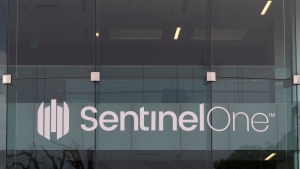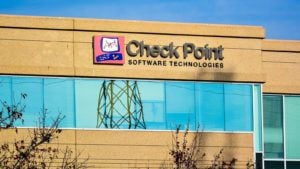3 Cybersecurity Stocks to Sell in July
The Covid-19 pandemic pushed digital transformation into first gear as many were forced to stay at home and a multitude of services had to be hosted online. By then, cybersecurity had already been a well-established subvertical in the technology industry. With so many businesses moving operations to the web, nimble middle market companies, such as Cloudflare (NYSE:NET) and Qualys (NASDAQ:QLYS), profited handsomely.
Fast-forwarding to 2023, U.S. equities have largely exceeded the expectations of many market-watchers and analysts. And technology equities across a number of subindustries have stood out the most. However, not every company has crushed expectations. Below is a list of three cybersecurity stocks you should think to sell this month.
SentinelOne (S)

SentinelOne (NYSE:S) is a global provider of cloud-based cybersecurity solutions, best-known for its ‘Singularity Extended Detection and Response Platform’. The concept leverages artificial intelligence to power cybersecurity solutions on an organization’s cloud network.
Singularity’s value proposition was simple. AI technology would create a human-like experience for the platform’s users, thus significantly decreasing upfront costs for customers. Addressing this pain-point in cybersecurity, SentinelOne roared into prominence with a record $1.2 billion in its 2021 initial public offering. Back then, Sentinel was posting triple-digit revenue growth and was a force to be reckoned with.
Robust revenue growth led the cybersecurity firm to ambitiously increase their workforce over the past couple of years. Recently, however, SentinelOne’s management announced layoffs of 5% of its workforce while simultaneously lowering its revenue forecast. Ultimately, the company’s decelerating revenue growth and expensive valuation are reasons investors should consider staying away.
Tenable Holdings (TENB)

Tenable Holdings (NASDAQ:TENB) has been another promising cloud-based cybersecurity platform. The platform specializes in “exposure management” solutions, which help companies to identify cybersecurity vulnerabilities in their private and public cloud infrastructure. The firm’s turnkey solutions were in high demand during the pandemic as many enterprises accelerated their cloud migration plans.
Ultimately, TENB has achieved consistent revenue growth figures above 20% since 2020. In October 2022, Tenable slightly shifted strategy and announced ‘Tenable One’ which would unify all existing solutions onto platform.
Prospects began to look cloudy for the growth stock when its revenue forecasts came in below Wall Street’s expectations. Management announced a difficult macroeconomic environment had elongated sales cycles. Longer periods of time to sign on potential customers will negatively impact Tenable’s revenue growth and subsequently, its share price. Tenable’s shares dropped more than 20% after the earnings announcement. For investors who want to avoid potentially larger losses, they should consider selling this stock.
Check Point Software Technologies (CHKP)

Check Point Software Technologies (NASDAQ:CHKP) develops a range of cybersecurity products and services globally, offering security architecture for cloud networks, mobile devices, and IoT (internet of things) products. The company’s end-markets include large enterprises, small-to-medium sized businesses (SMBs), and consumers.
In terms of financial performance, Check Point has delivered mixed results. Though maintaining bottom-line profitability for over two decades, Check Point’s revenue growth over the past five years has settled into the low single digits. This dynamic explains investors’ tepid attitude toward the stock.
Check Point’s shares are down nearly 1% YTD and are up around only 1.25% over the past twelve months. This lukewarm share performance stands out like a blemish in a technology subvertical full of high-growth companies. Check Point’s customer set, which includes SMBs and everyday consumers, is also in peril. Generally, the macroeconomic environment has made customers more risk-averse, putting a dent in Check Point’s product revenue over the past year.
On the date of publication, Tyrik Torres did not have (either directly or indirectly) any positions in the securities mentioned in this article. The opinions expressed in this article are those of the writer, subject to the InvestorPlace.com Publishing Guidelines.

